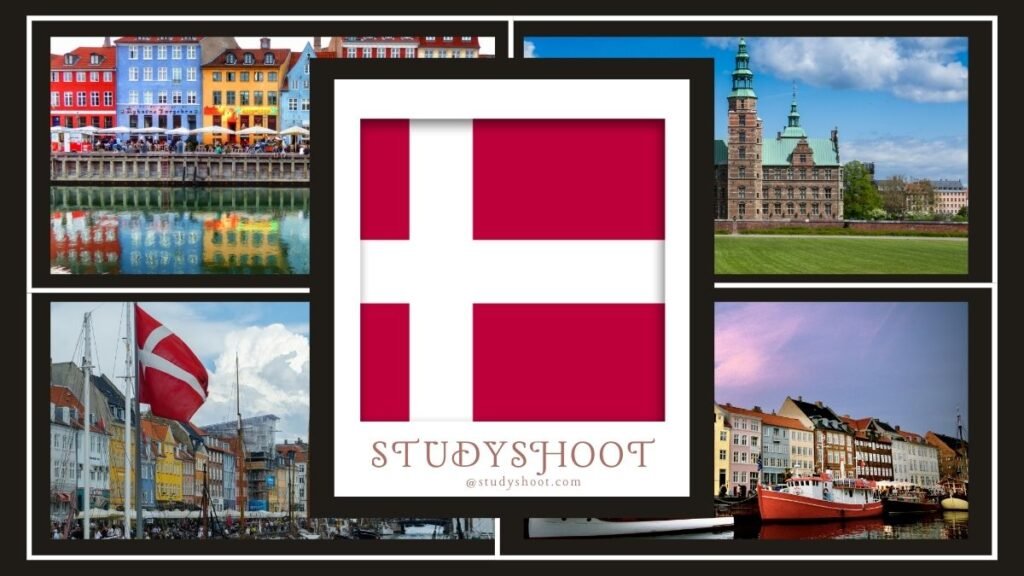الدنمارك بلد صغير في شمال أوروبا يشتهر بمستوى معيشته المرتفع وثقافته الغنية. تشهد الدنمارك الهجرة السنوية من مختلف أنحاء العالم.
حقائق سريعة عن الدنمارك
- الموقع: تقع الدنمارك في شمال أوروبا.
- العاصمة: كوبنهاغن
- اللغة: الدنماركية هي اللغة الرسمية, بينما الإنجليزية هي اللغة الأكثر شيوعًا.
- العملة: الكرونة الدنماركية.
- السكان: 5.8 مليون نسمة.
- المساحة: 43,094 كيلومتر مربع.
- الديانة: اللوثرية هي الديانة الرسمية, بينما هناك حرية العقيدة.
- النظام السياسي: ملكية دستورية برلمانية.
- الدنمارك هي أصغر الدول الاسكندنافية.
- كوبنهاغن هي موطن لتمثال حورية البحر الصغيرة.
- الدنمارك هي أكبر منتج للخنازير في الاتحاد الأوروبي.
عيوب الهجرة والحياة في الدنمارك
على الرغم من التحديات, تعمل الحكومة الدنماركية على توفير برامج دعم وإعانات للمهاجرين لمساعدتهم على الاندماج والبدء في حياة جديدة في الدنمارك.
1- مميزات الهجرة والحياة في الدنمارك
- تتمتع الدنمارك بأحد أعلى مستويات المعيشة في العالم, مع دخل مرتفع ونظام رعاية صحية شامل وتعليم مجاني.
- تُعد الدنمارك من أكثر الدول أمانًا في العالم, مع معدلات جريمة منخفضة.
- تُعرف الدنمارك بثقافتها التي تُعطي الأولوية للتوازن بين العمل والحياة, مع ساعات عمل قصيرة وإجازات مدفوعة.
- يُعد نظام التعليم الدنماركي من أفضل الأنظمة التعليمية في العالم, مع تعليم مجاني من رياض الأطفال إلى الجامعة.
- توفر الدنمارك نظام رعاية صحية شاملًا ومجانيًا لجميع المواطنين.
- تُعرف الدنمارك بمجتمعها المتسامح والمتنوع, مع احترام كبير للثقافات والأديان المختلفة.
2- مساوىء الهجرة إلى الدنمارك
- تُعد الدنمارك دولة باهظة الثمن, خاصة فيما يتعلق بالسكن والنقل.
- اللغة الدنماركية لغة صعبة التعلم, وقد يكون من الصعب الاندماج في المجتمع دون إتقانها.
- يُمكن أن يكون الطقس في الدنمارك باردًا وممطرًا لفترات طويلة من العام.
- سوق العمل في الدنمارك صغير نسبيًا, وقد يكون من الصعب العثور على عمل, خاصة في بعض المجالات.
- تُفرض الضرائب على الدخل في الدنمارك بمعدلات عالية.
- قد تكون الإجراءات الإدارية في الدنمارك معقدة وطويلة.
أنواع الهجرة إلى الدنمارك
تشهد الدنمارك 4 أنواع مختلفة من الهجرة بشكل مستمر, وهي كالتالي:ك
- الهجرة للعمل.
- الهجرة للدراسة.
- الهجرة للعائلة.
- الهجرة عن طريق الزواجز
- الهجرة كلاجئ.
كيفية الهجرة إلى الدنمارك و أنواع الإقامات
ومن الجوانب الهامة للهجرة في الدنمارك هو التحدي الثقافي والاجتماعي, حيث يجب على المهاجرين الجدد التكيف مع ثقافة جديدة ولغة جديدة, بالإضافة إلى مواجهة بعض التحديات في الحصول على الخدمات والفرص.
- برنامج تأشيرة العمل (Positive List Scheme)
- برنامج البطاقة الخضراء الدنماركية (Green Card Scheme)
- برنامج تأشيرة الباحثين (Researcher Visa)
- برنامج لم الشمل العائلي (Family Reunification)
- برنامج الهجرة للمستثمرين (Investor Visa)
- برنامج الهجرة لرجال الأعمال (Startup Denmark)
- برنامج تأشيرة العمالة الماهرة (Highly Qualified Workers Visa)
- برنامج الطلاب الدوليين (Student Visa)
- برنامج اللجوء السياسي (Asylum Program)
- برنامج الإقامة الدائمة (Permanent Residence Program)
الهجرة للعمل في الدنمارك

تعتبر الدنمارك وجهة مغرية للعمال المهرة من مختلف أنحاء العالم. يقدم الاقتصاد الدنماركي فرص عمل متنوعة في مجموعة واسعة من القطاعات, مما يجذب العديد من المهاجرين المؤهلين للسعي إلى العمل والاستقرار في هذا البلد الأوروبي المتقدم.
- العمل الماهر: تُعدّ هذه الطريقة الأكثر شيوعًا للعمل في الدنمارك. تُعلن الحكومة الدنماركية سنويًا عن قائمة بالوظائف المطلوبة, ويُمكن للأشخاص ذوي الخبرة في هذه الوظائف التقدم للحصول على تصريح عمل.
- البحث عن عمل: يُمكنك التقدم للحصول على تصريح عمل يسمح لك بالبحث عن عمل في الدنمارك لمدة تصل إلى 6 أشهر.
- البدء بالعمل الخاص: يُمكنك التقدم للحصول على تصريح عمل يسمح لك ببدء عملك الخاص في الدنمارك.
الشروط المطلوبة:
- جواز سفر ساري المفعول
- عدم وجود سجل جنائي
- إثبات القدرة المالية على تغطية نفقات المعيشة
- إجادة اللغة الدنماركية أو الإنجليزية
- مؤهلات أكاديمية أو مهنية مناسبة للوظيفة
- عرض عمل من شركة دنماركية (في بعض الحالات)
الأوراق المطلوبة للتقديم:
- نموذج طلب الهجرة
- جواز سفر ساري المفعول
- صور شخصية
- شهادة ميلاد
- شهادة حسن سيرة وسلوك
- مؤهلات أكاديمية أو مهنية
- إثبات القدرة المالية
- عرض عمل من شركة دنماركية (في بعض الحالات).
أنواع تصاريح العمل في الدنمارك
أهم أنواع تصاريح العمل:
- تصريح العمل الماهر: يُمنح هذا التصريح للأشخاص الذين لديهم عرض عمل من شركة دنماركية معتمدة.
- تصريح البحث عن عمل: يُمنح هذا التصريح للأشخاص الذين يبحثون عن عمل في الدنمارك.
- تصريح العمل الحر: يُمنح هذا التصريح للأشخاص الذين يخططون لبدء عمل تجاري في الدنمارك.
- تصريح العمل الموسمي: يُمنح هذا التصريح للأشخاص الذين يعملون في وظائف موسمية في الدنمارك.
- تصريح العمل المتدرب: يُمنح هذا التصريح للأشخاص الذين يخططون للتدرب في شركة دنماركية.
اقرأ أيضاً:
سجل في خدماتنا الآن
نقدم لك خدمات تجهيز الوثائق وترجمتها. استفد من خدمة الاستشارات لدينا واحصل على خصومات.
تعرف على المزيد..الهجرة للعائلة للدنمارك

تسعى العديد من العائلات إلى الانتقال إلى الدنمارك بهدف بناء حياة أفضل وأكثر استقرارًا لأنفسهم ولأطفالهم. يسعى الأفراد الذين لديهم أفراد عائلتهم المقيمة في الدنمارك أو لديهم شريك دنماركي إلى الحصول على تصاريح الإقامة للانضمام إليهم.
- الهجرة للعائلة المباشرة: تشمل هذه الفئة الزوج/الزوجة والأطفال دون سن 18 عامًا.
- الهجرة للعائلة غير المباشرة: تشمل هذه الفئة الوالدين والأطفال البالغين من العمر 18 عامًا أو أكثر.
الشروط المطلوبة:
- أن يكون لديك كفيل في الدنمارك: يجب أن يكون الكفيل مواطنًا دنماركيًا أو مقيمًا دائمًا في الدنمارك ولديه القدرة المالية على دعمك.
- أن تكون قادرًا على إعالة نفسك: يجب أن يكون لديك ما يكفي من المال لتغطية نفقاتك الخاصة ونفقات عائلتك.
- أن تكون لديك سكن مناسب: يجب أن يكون لديك مكان مناسب للعيش فيه أنت وعائلتك.
- أن تكون لديك تأمين صحي: يجب أن يكون لديك تأمين صحي شامل لك ولأفراد عائلتك.
- أن تكون لديك سجل جنائي خالٍ من السوابق: يجب أن تكون لديك سيرة ذاتية جيدة بدون أي سجل جنائي.
الأوراق المطلوبة للتقديم:
- نموذج طلب الهجرة
- جواز سفر ساري المفعول
- صور شخصية
- شهادة ميلاد
- شهادة زواج (في حال كنت متزوجًا)
- شهادة ميلاد الأطفال
- إثبات القدرة المالية
- إثبات السكن
- تأمين صحي
- سجل جنائي خالٍ من السوابق
- أي وثائق أخرى تدعم طلبك.
الهجرة إلى الدنمارك عن طريق الزواج

الزواج يُعتبر أحد الطرق الشائعة للهجرة إلى الدنمارك. إذا كنت شخصًا غير دنماركي وترغب في الانتقال إلى الدنمارك بسبب الزواج من شريك دنماركي أو شريكة دنماركية, فهناك إجراءات محددة يجب اتباعها للحصول على تصريح الإقامة والإقامة الدائمة في البلاد.
الشروط:
- يجب أن تكون أنت وزوجك في سن الرشد القانوني للزواج.
- يجب أن تكون غير متزوج من شخص آخر.
- يجب أن تكون قادرًا على إعالة نفسك.
- يجب أن يكون لديك سجل جنائي خالٍ من السوابق.
بعد الزواج من مواطن دنماركي, يجب أن يقدم الشخص الذي تزوج من تصريح إقامة في السفارة أو القنصلية الدنماركية في بلده. بعد تقديم الطلب, يجب عليه الانتظار للحصول على قرار بشأن طلبه. إذا تم قبول الطلب, فيجب عليه الانتقال إلى الدنمارك والبدء في إجراءات الإقامة هناك.
الأوراق المطلوبة:
- جواز سفر ساري المفعول.
- شهادة ميلاد.
- شهادة زواج.
- إثبات القدرة المالية.
- سجل جنائي خالٍ من السوابق.
اقرأ أيضاً: كيفية الحصول على فيزا شنغن الدنمارك
الهجرة كلاجئ للدنمارك

تستقبل الدنمارك اللاجئين الذين يفرون من الحروب والاضطهاد في بلدانهم. تتبنى الدنمارك سياسة استقبال للاجئين معتمدة على القوانين الدولية وتعاون مع منظمات حقوق الإنسان, مع التركيز على توفير الحماية والدعم للأفراد الذين يحتاجون إليها بشكل خاص.
- اللاجئون المعترف بهم: هم الأشخاص الذين تم الاعتراف بهم كلاجئين من قبل المفوضية السامية للأمم المتحدة لشؤون اللاجئين (UNHCR).
- اللاجئون المؤقتون: هم الأشخاص الذين تم منحهم الحماية المؤقتة في الدنمارك بسبب ظروف غير آمنة في بلدهم الأصلي.
الشروط المطلوبة:
- أن تكون لديك أسباب مبررة للخوف من الاضطهاد في بلدك الأصلي.
- أن تكون غير قادر على العودة إلى بلدك الأصلي بسبب الخوف من الاضطهاد.
- أن تكون لاجئًا معترفًا به من قبل المفوضية السامية للأمم المتحدة لشؤون اللاجئين (UNHCR).
- أن تكون لاجئًا مؤقتًا تم منحه الحماية المؤقتة في الدنمارك.
الأوراق المطلوبة للتقديم:
- جواز سفر ساري المفعول (إن وجد)
- وثائق تثبت هويتك
- وثائق تثبت سبب هروبك من بلدك الأصلي
- أي وثائق أخرى تدعم طلبك
أنواع الاقامات في الدنمارك
توجد عدة أنواع من تصاريح الإقامة في الدنمارك التي تختلف وفقًا لغرض الإقامة ووضع كل فرد. هناك بعض الأنواع الرئيسية لتصاريح الإقامة في الدنمارك للأجانب, وهي كالتالي:
- تصريح الإقامة للعمل يتيح للأجانب الذين حصلوا على عرض عمل.
- تصريح الإقامة للدراسة للطلاب الدوليين الذين يرغبون في الدراسة.
- تصريح الإقامة للعائلة يتيح هذا التصريح لأفراد الأسرة للانضمام إلى أفراد عائلتهم.
- تصريح الإقامة للبحث عن عمل بعد التخرج.
- تصريح الإقامة الدائمة يمنح للأشخاص الذين قضوا فترة معينة من الزمن في الدنمارك.
تقديم طلب الحصول على تأشيرة الدنمارك
لتقديم طلب الحصول على تأشيرة الدخول إلى الدنمارك, تتطلب العملية مجموعة من الخطوات المحددة وتجمع بين الإجراءات الإلكترونية والورقية, ويجب اتباعها بدقة لضمان نجاح الطلب والحصول على التأشيرة المطلوبة بنجاح.
يتعين عليك تحديد نوع التأشيرة التي تحتاج إليها, حيث تختلف الإجراءات والوثائق المطلوبة اعتمادًا على نوع التأشيرة.
يمكن أن تشمل التأشيرات المطلوبة للدخول إلى الدنمارك تأشيرة شنغن إذا كنت تخطط للبقاء لفترة قصيرة تصل إلى 90 يومًا, أو تأشيرة الإقامة الطويلة إذا كنت تخطط للبقاء لمدة تزيد عن 90 يومًا.
بعد تحديد نوع التأشيرة, يجب عليك ملء نموذج طلب التأشيرة المناسب, وتقديمه إلى السلطات المعنية. يجب أن يتم ملء النموذج بمعلومات صحيحة وكاملة, وتوفير الوثائق المطلوبة, والتي قد تتضمن جواز السفر, صور شخصية, إثباتات مالية, وثائق دعم الغرض من الزيارة أو الإقامة.
بعد ذلك, يجب عليك حجز موعد في السفارة أو القنصلية الدنماركية في بلدك, حيث ستقدم طلبك وتجري المقابلة إذا كانت مطلوبة. من المهم الحصول على الموعد في الوقت المناسب, لذا يُفضل البدء في هذا الإجراء مبكرًا.
وأخيرًا, يتعين عليك حضور المقابلة في الوقت المحدد وفقًا للموعد الذي تم حجزه. في هذه المقابلة, قد يتم سؤالك عن أغراض الزيارة أو الإقامة, ويتم فحص الوثائق والمستندات التي قدمتها.
بعد اكتمال هذه الخطوات, ستقوم السلطات بمراجعة طلبك واتخاذ قرار بمنح التأشيرة أو رفضها, وفي حال الموافقة, سيتم إصدار التأشيرة بعد فترة قصيرة تتفاوت وفقًا لإجراءات السفارة أو القنصلية وعدد الطلبات الأخرى التي قد تكون قيد المعالجة.
تكاليف الهجرة إلى الدنمارك
بشكل عام, تتراوح تكاليف الهجرة إلى الدنمارك بين 500 و 3000 يورو.
أمثلة على بعض التكاليف:
- رسوم التأشيرة:
- تأشيرة شنغن: 80 يورو.
- تأشيرة الإقامة الطويلة: 1500 يورو.
- حجز تذكرة طيران ذهابًا وإيابًا: 200 – 500 يورو.
- إثبات القدرة المالية:
- كشف حساب بنكي.
- إثبات ملكية العقارات.
- تأمين سفر:
- تأشيرة شنغن: 30 يورو.
- تأشيرة الإقامة الطويلة: 100 يورو.
- رسوم ترجمة الوثائق.
- رسوم فحص طبي.
مدة الحصول على تأشيرة الدنمارك
مدة الحصول على تأشيرة الدنمارك تعتمد على عدة عوامل مهمة تشمل نوع التأشيرة المطلوبة, جنسيتك, ومدى اكتمال ملف طلبك, بالإضافة إلى عامل الضغط على السفارة أو القنصلية الدنماركية في بلدك.
أولاً وقبل كل شيء, تتفاوت مدة معالجة تأشيرة الدنمارك حسب نوع التأشيرة المطلوبة. على سبيل المثال, تأشيرة شنغن, التي تسمح بالإقامة لمدة تصل إلى 90 يومًا في منطقة شنغن, قد تتم معالجتها في غضون 3 إلى 15 يومًا, بينما قد تستغرق تأشيرة الإقامة الطويلة, التي تُسمح للفرد بالبقاء لمدة تزيد عن 90 يومًا, من 3 إلى 6 أشهر لمعالجتها.
ثانيًا, يجب أن يكون ملف طلبك كاملًا ومتكاملًا قدر الإمكان. فإذا كان هناك أي نوع من الوثائق أو المعلومات مفقودة أو غير مكتملة, فقد يؤدي ذلك إلى تأخير معالجة طلبك.
ثالثًا, يعتمد وقت الانتظار أيضًا على الضغط على السفارة أو القنصلية الدنماركية في بلدك. في بعض الأحيان, قد تكون السفارات مشغولة بطلبات كثيرة مما يؤدي إلى زيادة مدة المعالجة, في حين قد تكون في أوقات أخرى أقل ازدحامًا مما يؤدي إلى تسريع عملية المعالجة.
بشكل عام, فإن مدة الحصول على تأشيرة الدنمارك تتراوح ما بين 3 أيام إلى 6 أشهر تقريبًا, ولكن يجب أن تكون على استعداد للتعامل مع الاختلافات في الوقت تبعًا للظروف المحددة لكل شخص ولكل حالة.
رفض تأشيرة الدنمارك

توجد عدة أسباب قد تؤدي إلى رفض تأشيرة الدنمارك, وتشمل هذه الأسباب عدم استيفاء شروط التأشيرة, عدم كفاية المعلومات المقدمة, والشكوك حول نوايا مقدم الطلب, بالإضافة إلى أسباب أخرى قد تكون متعلقة بالسجل الجنائي أو الأنشطة السابقة للمقدم للطلب.
فيما يلي بعض الأسباب التي قد تؤدي إلى رفض تأشيرة الدنمارك:
عدم استيفاء شروط التأشيرة
- عدم تقديم جميع الوثائق المطلوبة.
- عدم صحة الوثائق المقدمة.
- عدم إثبات القدرة المالية على تغطية نفقات المعيشة.
- عدم إثبات وجود سكن مناسب في الدنمارك.
- عدم إثبات وجود تأمين سفر ساري المفعول.
- عدم إثبات الغرض من السفر إلى الدنمارك.
- وجود سجل جنائي.
- عدم تقديم معلومات كافية عن خطط السفر.
- عدم تقديم معلومات كافية عن مكان الإقامة في الدنمارك.
- عدم تقديم معلومات كافية عن كيفية تمويل رحلة السفر.
- الشك في أن مقدم الطلب ينوي البقاء في الدنمارك بشكل غير قانوني.
- الشك في أن مقدم الطلب ينوي العمل في الدنمارك دون تصريح عمل.
- الشك في أن مقدم الطلب يشكل تهديدًا للأمن القومي أو النظام العام.
- عدم حضور المقابلة في الموعد المحدد.
- عدم دفع رسوم التأشيرة.
- وجود قرار سابق برفض تأشيرة لدولة عضو في منطقة شنغن.
نصائح لتجنب رفض تأشيرة الدنمارك:
لتجنب رفض تأشيرة الدنمارك, يجب عليك اتباع سلسلة من النصائح واتخاذ الإجراءات اللازمة لضمان تقديم طلب قوي ومكتمل.
تتمثل هذه النصائح في التأكد من استيفاء جميع شروط التأشيرة وتقديم جميع الوثائق المطلوبة بشكل صحيح وكامل, وإثبات القدرة المالية على تغطية تكاليف المعيشة في الدنمارك, بالإضافة إلى تقديم معلومات كافية حول خطط السفر ومكان الإقامة وتمويل الرحلة.
- تأكد من استيفاء جميع شروط التأشيرة.
- قدم جميع الوثائق المطلوبة مترجمة إلى اللغة الإنجليزية أو الدنماركية.
- تأكد من صحة جميع الوثائق المقدمة.
- أثبت قدرتك المالية على تغطية نفقات المعيشة.
- أثبت وجود سكن مناسب في الدنمارك.
- أثبت وجود تأمين سفر ساري المفعول.
- أثبت الغرض من السفر إلى الدنمارك.
- قدم معلومات كافية عن خطط السفر.
- قدم معلومات كافية عن مكان الإقامة في الدنمارك.
- قدم معلومات كافية عن كيفية تمويل رحلة السفر.
- حضر المقابلة في الموعد المحدد.
مواقع مفيدة: وزارة الخارجية الدنماركية
